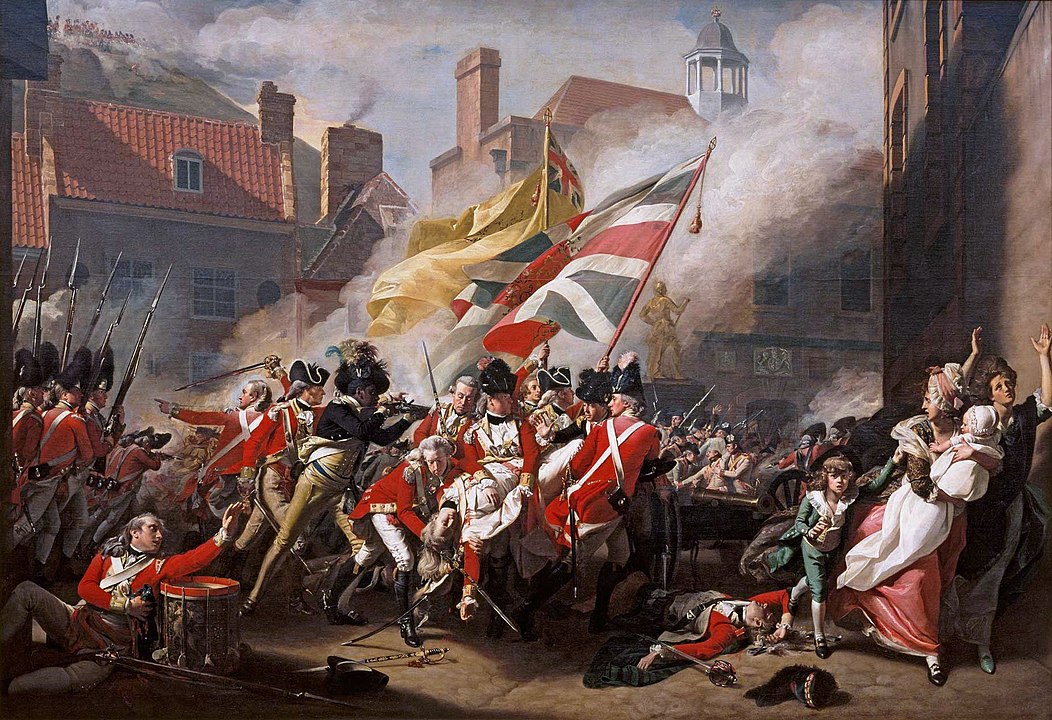

 On January 6, 1781, France invaded England.
On January 6, 1781, France invaded England.
That sounds more impressive than it really was. This wasn’t the invasion the English worried about. That one was some twenty years in the future, when Napoleon was planning an invasion. And it wasn’t an invasion of England proper. The invasion took place on Jersey, one of the Channel Islands and it lasted less than 24 hours.
Why did it happen? The American Revolution had once again brought about hostilities between England and France, and the Channel Islands provided a base from which privateers could harass French and American shipping.
An earlier attempt to invade had been made in May 1779, but it had been driven off by gunfire and a falling tide before any of the ships had made land. One of the French officers from that attempts, Baron Philippe de Rullecourt, was determined to try a second time.
The Baron is a bit of a mystery man himself. His name may have been Rullecourt or Macquart. He may have been French or Flemish, a mercenary who served in Spain and Poland before coming to France, and he may have given himself the title of baron. Nonetheless, he was a general in the French army when he led the attack on Jersey.
At about two o’clock in the morning, the French arrived on the southern coast of the island near the Banc de Violet. They landed unopposed, but bad weather prevented some of the ships from arriving, others foundered on the reefs, and only 800 of the original force of 2000 actually made it to land.
The survivors marched to St. Helier, the principal town of Jersey, overcame the guard, and captured the town. Rullecourt sent a detachment to capture the Lieutenant Governor, Major Moses Corbet, at the Government House to the east of the town and bring him to the Court House.
There Rullecourt managed to convince Corbet that the French had already overrun the island and told him to sign an order telling the troops at Elizabeth Castle, the fort on Jersey, to surrender. Corbet protested that since he was now a prisoner, he did not have the authority to issue orders.
Rullecourt threatened to burn the town and put the inhabitants to the sword if Corbet refused.
Corbet signed.
However, Captain Aylward, in command at Elizabeth Castle, refused to surrender and instead fired upon the French, who retired.
In the meantime, Major Francis Peirson, next in command to Major Corbet, gathered the troops and militia of the garrison, some 2,000 men, and marched on St. Helier. Rullecourt sent a message to Peirson, warning him to surrender within the next half hour. Peirson answered that the French had 20 minutes to surrender.
The subsequent battle did not last long. Rullecourt had dragged Corbet into the town square with him, saying that he should share his fate in the battle. In less than half an hour, Rullecourt fell, mortally wounded, and surrendered. His bluff had failed. Corbet suffered only two bullet holes in his hat.
The French had hundreds of casualties, the British only a dozen or so, but one of them was Major Peirson. He was 24.
The event inspired John Singleton Copley's 1783 painting, seen above, The Death of Major Peirson.

Comments
Post new comment